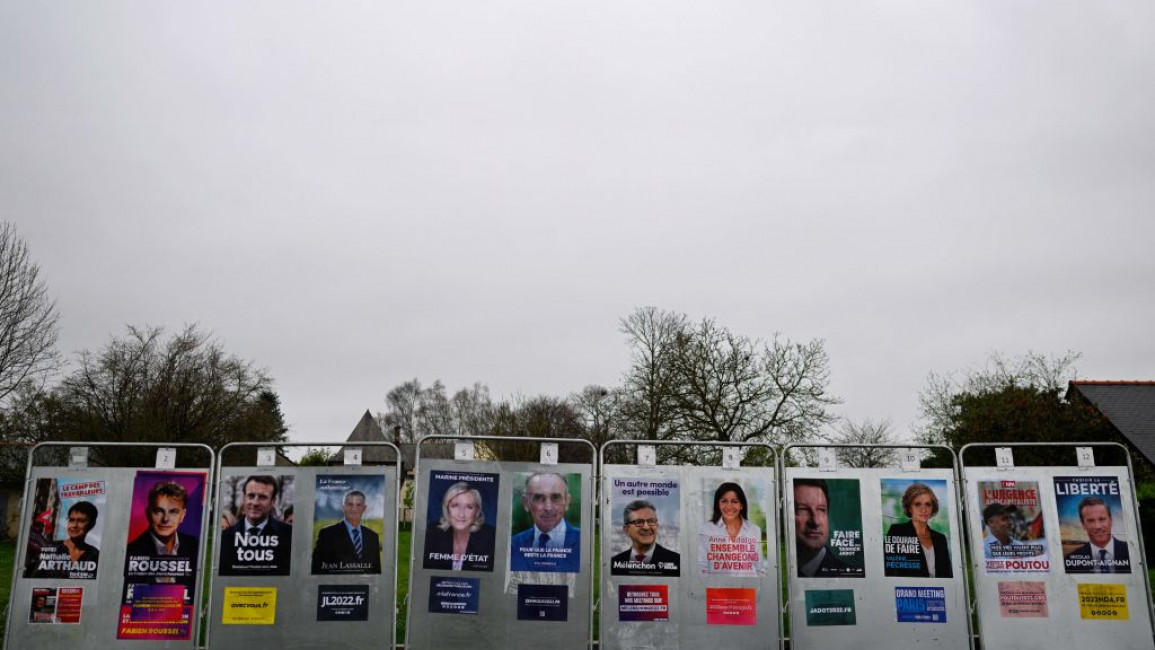French presidential election: Who are the candidates?
France votes on Sunday in the first round of its presidential election, which opposes twelve candidates.
The two top runners in today's vote will head for a runoff second round, held on April 24, which will conclude a campaign marked by the rise of several far-right candidates, the splintering of the French left, and the collapse of France's traditional large moderate parties.
According to the last opinion polls published on Friday, incumbent president Emmanuel Macron is, for now, the frontrunner, gathering 26.5% of voting intentions.
In power since 2017, Macron initially labelled himself a centrist but seems has drifted markedly rightwards during his term. He has promised to implement more tax cuts, reform social benefits and increase the retirement age if re-elected.
Macron is closely followed by Marine Le Pen (23%), the leader of France's historic far-right party Le Rassemblement National.
This is Le Pen's third attempt for the presidency after reaching the second round in 2017, where she was crushed by Macron with over 66% of votes.
Long portrayed by her opponent as an extremist, xenophobic candidate, Le Pen has sought to cast herself as more mainstream, moderate and competent than her far-right rivals - and even her former self.
For the first time, Le Pen's uncontested leadership over the far right has been seriously challenged among her own supporters by Eric Zemmour, a TV pundit whose popularity skyrocketed in October.
Zemmour's large following is owed largely to his anti-Islam and anti-immigration views, which have enabled him to draw support away from Le Pen.
However, his sympathies for Russian president Vladimir Putin caused him to lose popularity when Russia invaded Ukraine in February.
The third candidate in the far-right is Nicolas Dupont-Aignan, a eurosceptic who bubbles up in French public life every five years at presidential election time.
He has promised to crack down on immigration and give "a kick in the butt to the lazy, slackers and free riders", but has been largely drowned out by Le Pen and Zemmour.
United in denouncing globalisation, far-left parties have however been unable to agree on a common candidate:
While parties at both extremes of the political spectrum have gained traction throughout the campaign, France's traditional large parties have completely collapsed and are set to lose heavily in the first round.
On the right, for the first time, France's conservative Republican party will be represented by a female candidate, Valerie Pecresse.
The former budget minister has accused Macron of overspending and being soft on crime, but her campaign has struggled to gain traction and she is not expected to make it to the second round.
The left's Socialist Party is also represented by a female candidate,
The Socialist Party has been floundering since the 2017 presidential and parliamentary elections, and polls suggest it may struggle to score even two percent in this election.
Finally, France's oddest candidate perhaps is the ruralist Jean Lassalle, an eccentric MP from the Pyrenees mountains in southwest France.
The former shepherd is known for his strong regional accent and passionate defence of rural communities, he stands almost no chance in the presidential vote.



